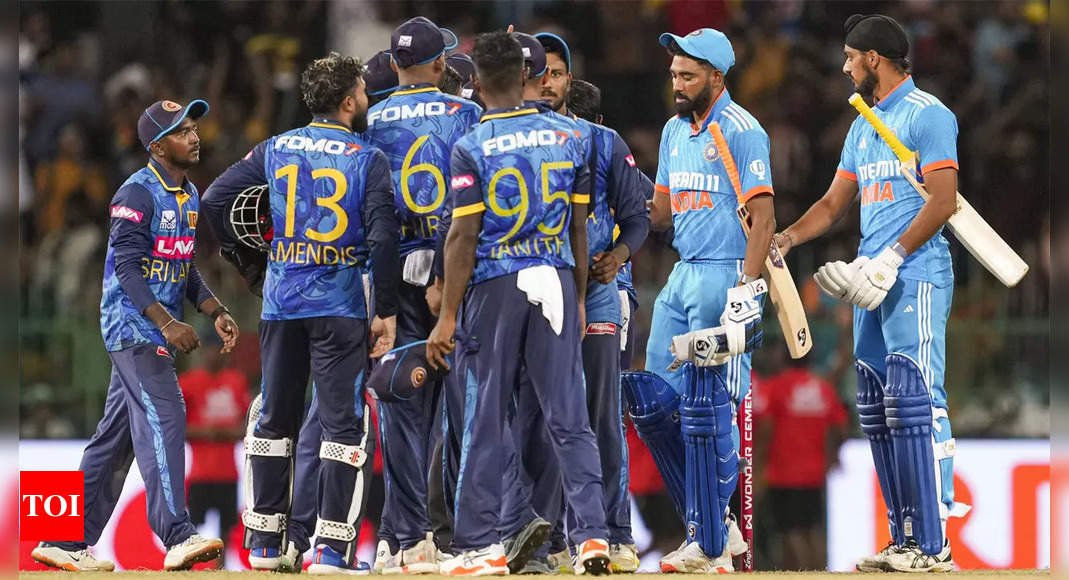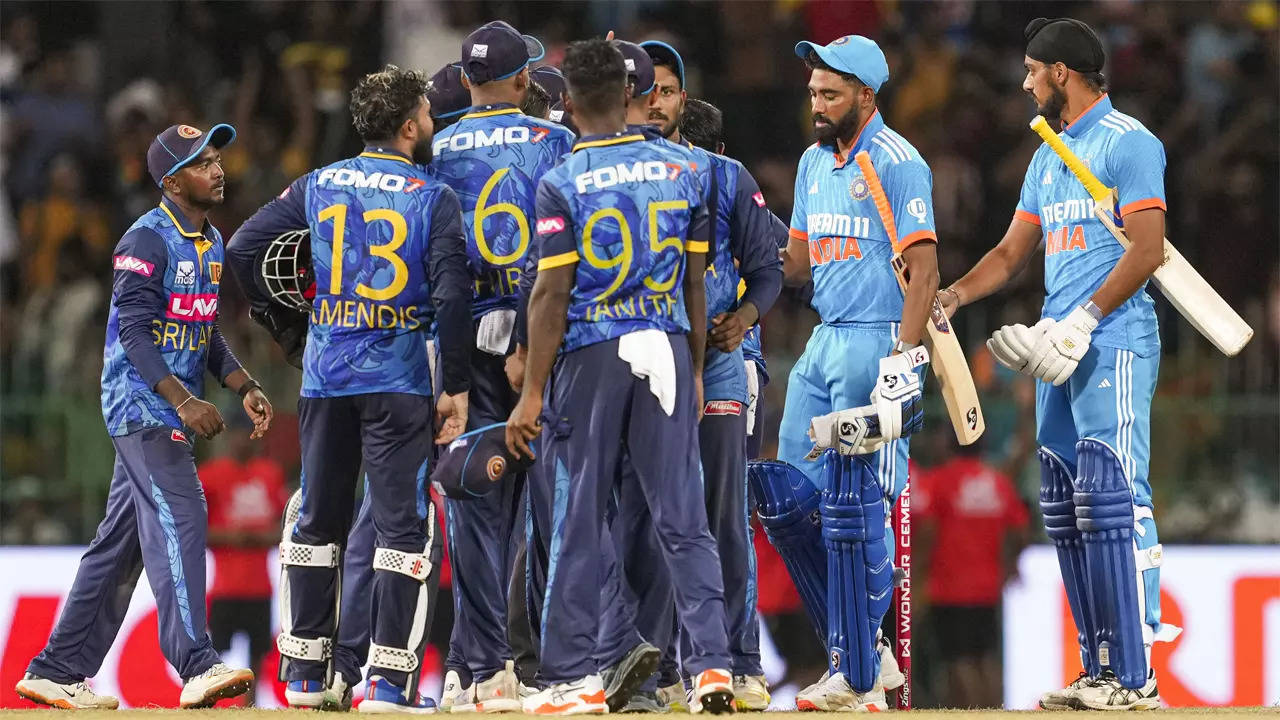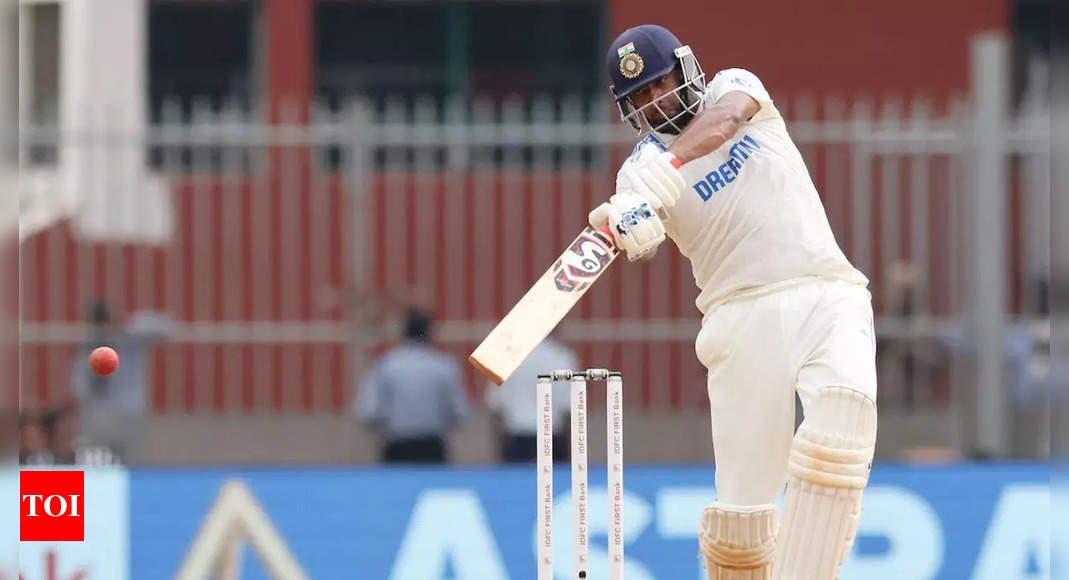While it’s unclear if the rule was amended for the ODI series after mutual agreement between the two teams, the third match of the T20I series in the earlier part of this tour was decided by a ‘Super Over’.
That led to confusion the day after the first ODI on Friday at the R Premadasa Stadium in Colombo ended in a tie as India’s chase ended at 230 all out, the same total as Sri Lanka’s.
The ICC’s ODI Playing Conditions pertaining to tied ODIs suggest the ‘Super Over’ rule should have been used by the match officials.
ACCORDING TO THE RULE
The ICC Men’s ODI Playing Conditions were last amended in December 2023 and the same have applied ever since. Clause 16.3.1.1 states all ODI matches ending in a tie shall have a ‘Super Over’ unless conditions don’t allow it to be played.
According to the rule: “…a Super Over shall be played. If the Super Over is a tie, then unless exceptional circumstances arise, subsequent Super Overs shall be played until there is a winner. Should it not be possible to play or complete the Super Overs needed to determine a winner, the match shall be tied.”
THE MOST FAMOUS SUPER OVER IN ODIs
The final of the 2019 ODI World Cup had to be decided on boundary countback after both the stipulated 50-overs-a-side match and the subsequent ‘Super Over’ ended in ties and couldn’t break the deadlock.
The second ODI of the series will be played on Sunday.






